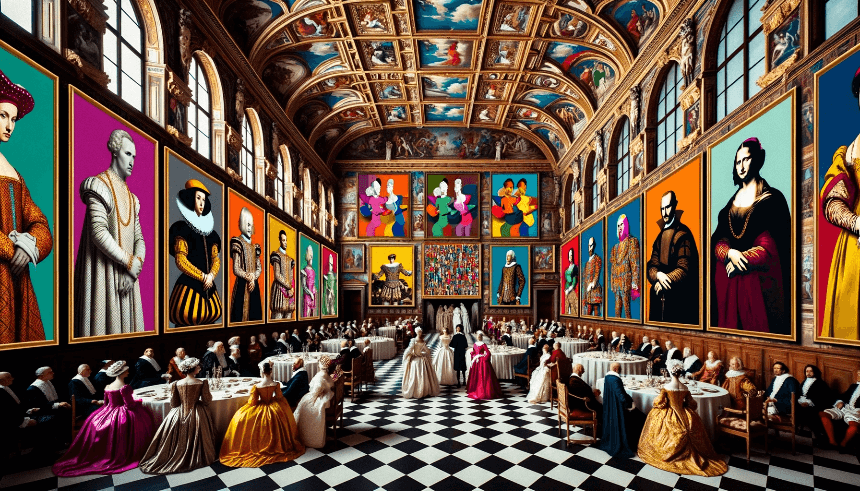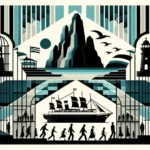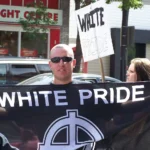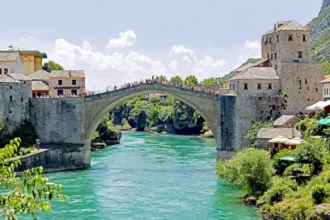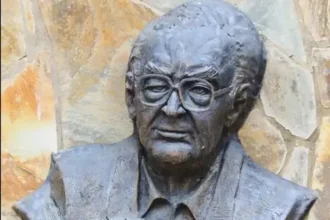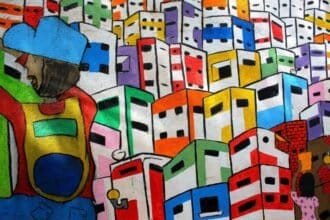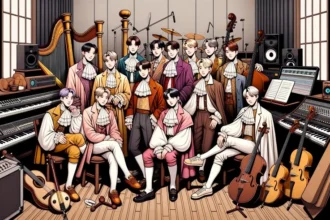At first glance, politics, with its solemn debates and policy discussions, appears to inhabit a realm far removed from the glitz and glamour of pop culture. The former is seen as the serious business of running nations, while the latter offers escapism through music, movies, and fashion. However, this perceived divide is more porous than one might think.
Pop culture, in its essence, is a reflection of society’s pulse, capturing its hopes, anxieties, and dreams. When a chart-topping song addresses climate change or a blockbuster film highlights social injustice, it’s not merely entertainment. It’s a mirror held up to society, echoing its concerns and catalyzing conversations on platforms that might otherwise remain apolitical.
On the flip side, politics has recognized the power of pop culture as a tool for outreach. Politicians no longer limit themselves to traditional rallies or press conferences. They guest on popular talk shows, engage with influencers, and harness the power of viral memes to make their messages resonate with a broader, often younger, audience. This isn’t just strategy; it’s an acknowledgment that the lines between governance and entertainment are blurring.
This interplay between politics and pop culture is a testament to their evolving roles in the digital age. No longer confined to separate spheres, they intertwine, shaping and being shaped by one another. The result? A richer, more nuanced societal narrative where serious political discourse can coexist with, and even be enhanced by, the vibrancy of pop culture.
The Pop Culture Phenomenon: More Than Just Entertainment
Pop culture is everywhere. It’s in the catchy tunes we hum, the films we discuss, and the viral memes we share. Its influence is vast, reaching audiences of all ages and backgrounds. But it’s more than just a source of amusement. It’s a powerful force that molds public opinion.
Movies and music have always been more than entertainment. They’re reflections of society’s values, concerns, and aspirations. A film that addresses racial inequality or a song that speaks of gender rights isn’t just art. It’s a statement. It’s a call to action. It’s a reflection of the times we live in.
Consider the impact of a chart-topping song. It’s not just about catchy lyrics or a memorable tune. It’s about the message it carries. When that message is political, the song becomes a rallying cry. It mobilizes people. It makes them think, discuss, and sometimes even act.
Similarly, films have the power to challenge the status quo. They can spotlight issues often ignored by mainstream media. They can give a voice to the marginalized. They can inspire change. A movie that tackles a pressing social issue can ignite debates. It can influence public opinion. It can even sway policymakers.
Politics Embraces the Pop Stage
In today’s era, politics isn’t confined to parliamentary debates or policy discussions. It’s stepping onto larger, more diverse stages. The lines between a politician and a pop culture icon are blurring, and the results are both intriguing and impactful.
Late-night talk shows, once the domain of celebrities, now frequently host politicians. These appearances offer a unique blend. Serious policy discussions are interspersed with humor and candid moments. This mix humanizes politicians, making them more relatable to the general public.
Then there are the viral challenges. Politicians participating in dance trends or taking up social media challenges might seem frivolous. But there’s strategy behind the fun. Engaging in these trends not only showcases their lighter side but also amplifies their reach. A viral video can garner millions of views, ensuring their message, or simply their brand, reaches far and wide.
Memes, the language of the internet, have also embraced politics. A politician’s statement, gesture, or even a gaffe can become an internet sensation overnight. While memes can be double-edged, they ensure that politicians remain at the forefront of digital conversations.
This fusion of politics with pop culture elements is strategic. It’s about accessibility. By engaging with pop culture, politicians break barriers. They reach out to demographics that might not consume traditional news, especially the youth. In doing so, they not only expand their audience but also reshape the way politics is perceived and discussed in contemporary society.
A Two-Way Street: Politics and Pop Culture Intersect
It’s a dance of mutual benefit. Politics and pop culture, seemingly distinct, have found common ground, enriching each other in the process. Their interplay is reshaping how we consume information and engage with pressing issues.
Pop culture has a knack for simplifying complex narratives. Through catchy songs, compelling storylines, or viral trends, it distills political issues into digestible formats. This approach doesn’t dilute the message. Instead, it makes it accessible. A hit series addressing climate change or a song championing equality can introduce political topics to audiences who might otherwise remain oblivious.
On the other hand, politics recognizes the vast reach of pop culture. Politicians and policymakers are tapping into its platforms to amplify their messages. Whether it’s a politician participating in a popular podcast or using a trending hashtag, the goal is clear. It’s about reaching a wider audience, especially the younger generation, and making politics more relatable.
This convergence isn’t just beneficial; it’s transformative. By intertwining, politics and pop culture are democratizing information. They’re ensuring that political discourse isn’t limited to newsrooms or parliamentary chambers. It’s happening everywhere – on social media feeds, in music festivals, and even in casual conversations.
In essence, this mutual influence is bridging gaps. It’s ensuring that politics isn’t an elite discourse. And it’s proving that pop culture, often dismissed as mere entertainment, can be a potent tool for awareness and change.
The Future Landscape: Politics and Pop Culture Intertwined
The melding of politics and pop culture isn’t a fleeting phenomenon. It signifies a shift in our societal fabric, reflecting how we interact with and understand our surroundings. As the boundaries blur, we’re entering an era of heightened awareness and engagement.
Pop culture, once a realm of escapism, now shoulders a more significant responsibility. It’s not just about reflecting society but actively shaping it. When a TV show or a song delves into political themes, it’s not merely for dramatic effect. It’s a conscious effort to spark dialogue, challenge norms, and inspire action.
Conversely, politics, often seen as a rigid domain, is embracing the fluidity of pop culture. By adopting its tools, from social media campaigns to pop references in speeches, politics becomes more approachable. It’s a strategy to resonate with a broader audience, ensuring that political discourse isn’t confined to a select few.
This synergy between politics and pop culture is reshaping our societal narrative. It’s fostering a world where information is democratized, where political awareness isn’t a privilege but a norm. As we move forward, this interconnected landscape promises a society that’s not only more informed but also more empowered to effect change.


